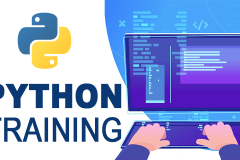When it comes to automating REST APIs in Python, there are several key concepts and libraries you should learn:
-
Requests Library: The
requestslibrary is essential for making HTTP requests to REST APIs. You'll need to understand how to use methods like GET, POST, PUT, and DELETE to interact with API endpoints. -
JSON Handling: REST APIs often communicate using JSON (JavaScript Object Notation). Familiarize yourself with Python's
jsonmodule to parse JSON responses and serialize data for requests. -
Authentication: Learn how to handle authentication mechanisms such as API keys, OAuth, and token-based authentication to access protected resources.
-
Error Handling: Understand how to handle errors and exceptions that may occur when making API requests, and implement appropriate error handling strategies.
-
API Documentation: Study the API documentation thoroughly to understand the available endpoints, request parameters, response formats, and any rate limits or authentication requirements.
-
Endpoint Design: Learn how to construct valid endpoint URLs and incorporate query parameters, request headers, and request bodies as needed.
-
Testing and Validation: Implement testing practices to verify that your API requests and responses are working correctly. Tools like
unittestor third-party libraries likepytestcan be useful.






